When Olwyn Lee booked a group trip to climb Mount Toubkal, she travelled with a group of people she’d never met, and a few friends from a previous trip. The day before the hike, they went out for a meal in Marrakech.
“Some of us were very chatty and catching up with each other, but there were a few quieter people,” she says. “But on the first day, when we started climbing mountains, everyone was giving high fives once we got to the top and being really encouraging. You could barely tell who knew each other at the start of the trip anymore.”
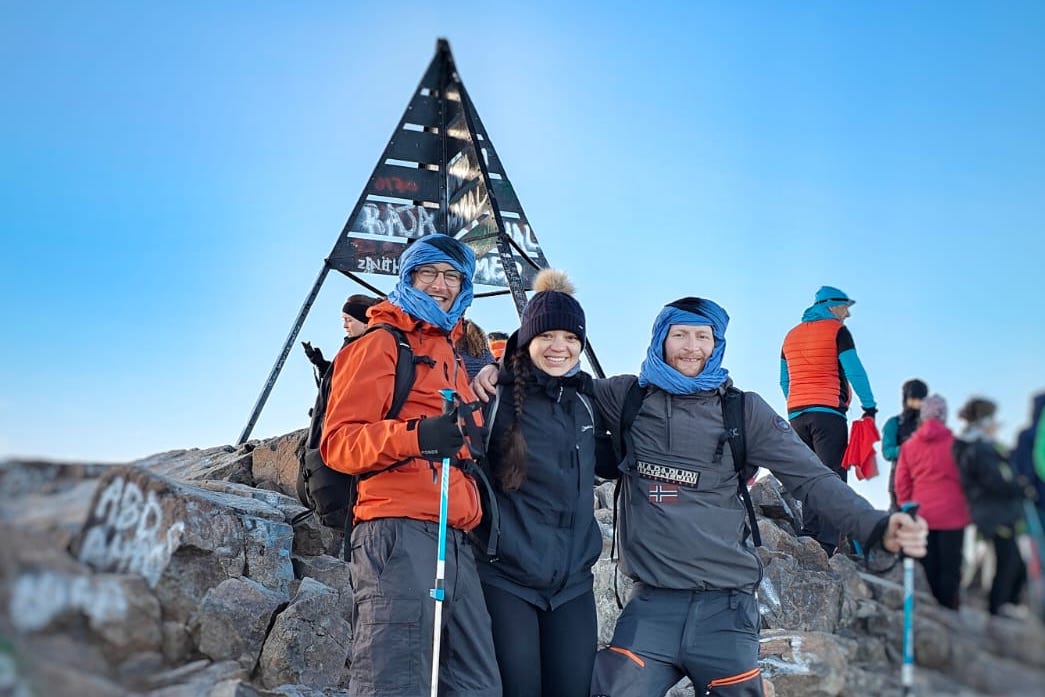
This isn’t unusual. It’s surprising how quickly a group of people bond when they spend time together outdoors. But what is it about nature that creates this sense of community and friendship? We drew upon our own experiences, chatted to Olwyn and took to the books in search of answers. Here’s what we discovered.
6 Reasons Why Nature Helps You Make Friends
1. Because Being in Nature Makes You Happier

When we’re out in nature, we feel more relaxed and happy - an ideal time to make friends. And we’re not the only ones. Yoshifumi Miyazaki, Vice Director of the Center for Environment, Health and Field Sciences at Chiba University in Japan, studied the responses of hundreds of participants after a walk in the woods. These walks resulted in an average 12 percent reduction in cortisol levels (the stress hormone) and a six percent decrease in heart rate. But why?
One answer is the biophilia hypothesis, a theory proposed by E. O. Wilson. It suggests we are evolutionarily hardwired to feel connected to the natural world, and find it relaxing.
The biophilia hypothesis posits that peaceful or nurturing elements of nature helped us regain equanimity, cognitive clarity, empathy and hope
“Our ancestors also had to learn how to recover from stress, Pleistocene-style,” writes Florence Williams, in her book The Nature Fix. “After they were chased by a lion or dropped a precious tuber over a cliff, they had to get over it in order to be welcomed back to the tribe, without which there was little survival.
“The biophilia hypothesis posits that peaceful or nurturing elements of nature helped us regain equanimity, cognitive clarity, empathy and hope. When love, laughter and music weren’t around, there was always a sunset. The humans who were the most attuned to the cues of nature were the ones who survived to pass on those traits.”
2. Because You’re More Focused

One of the things Olwyn likes best about being outdoors is the mental clarity it brings her.
“When you work, you have a set amount of tasks and you just have to get through the day. It's really hard to switch your brain off,” she says. “But when you're really focused on climbing a mountain or hiking 20 kilometres, it's really easy to tune out and just focus on the task at hand. It's quite easy to be social in that kind of environment, because you're not stressed by work, or so many things going on.”
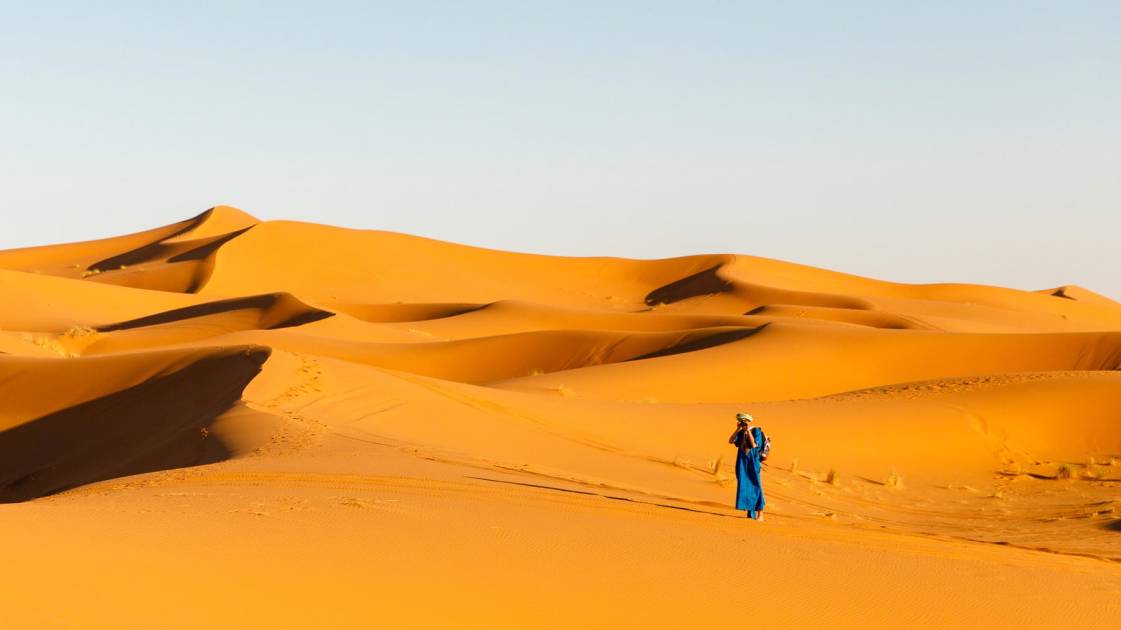
What Olwyn’s saying is backed up by neuroscience. Our brain receives so much information that it’s constantly needing to filter things out. But doing so takes up a lot of energy; the more we’re having to filter out the more depleted we become.
“Task-switching, which is something we do an awful lot of these days, burns up precious oxygenated glucose from the prefrontal cortex and other areas of the brain, and this is energy we need for both cognitive and physical performance. It’s no wonder it feels pretty good to space out and watch a butterfly,” Williams writes.
The prefrontal cortex also helps regulate our emotions and respond appropriately in social situations - all of which help us make friends. It will work more effectively when we’re immersed in natural environments, where there are fewer distractions and demands on us.
3. Because You’re Experiencing Awe
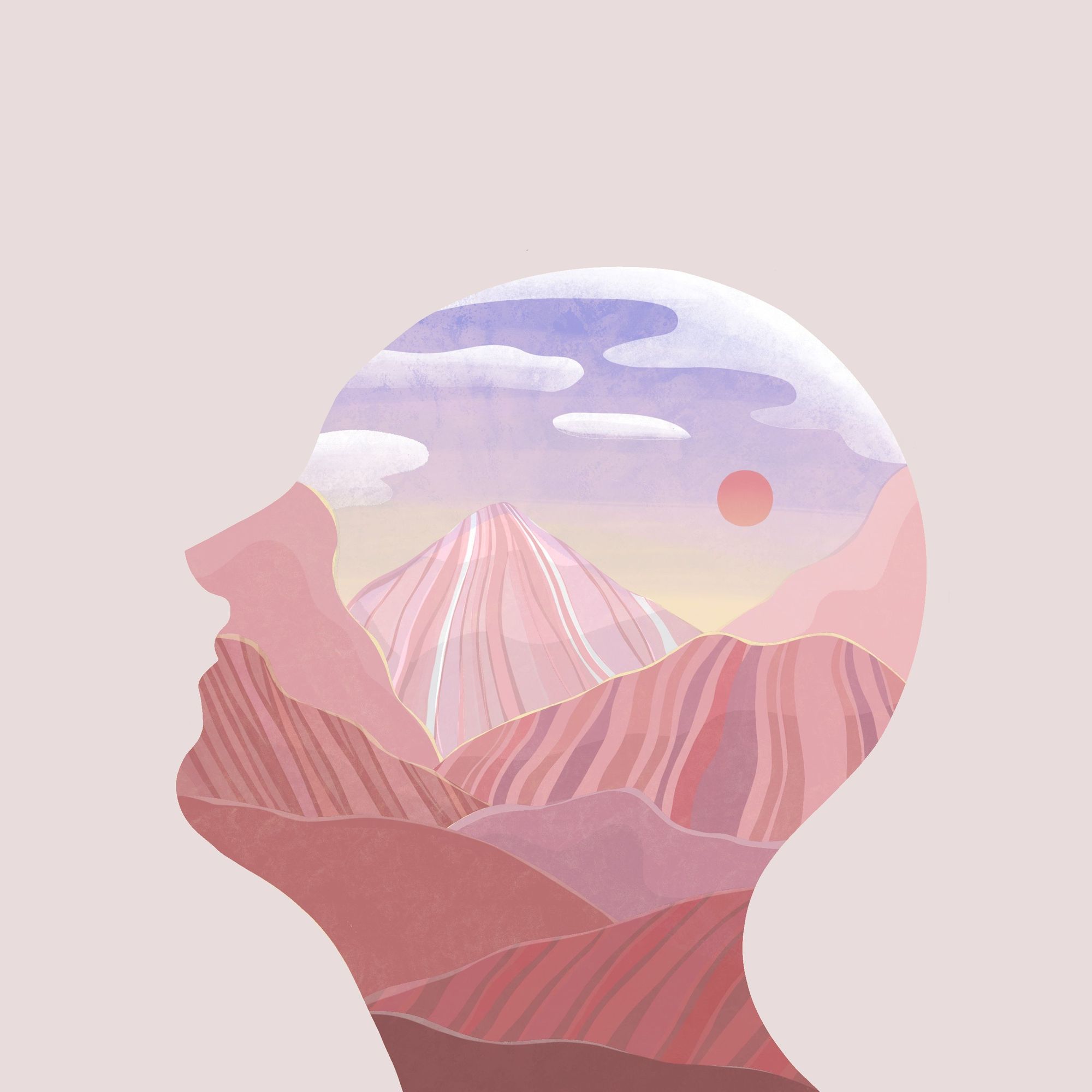
Sometimes, a landscape moves us. The sight of a chain of mountains stretching to the horizon, or a torrential waterfall. We describe these transcendent experiences of nature as awe-inspiring, and they have the power to change our perspective, as social psychologist Dacher Keltner has discovered.
Keltner and his team have staged experiments to discover whether experiencing awe makes us more generous. In one experiment, 1,500 participants were asked how often they felt awe, alongside other emotions. They were then given 10 lottery tickets and told they could give some away. Participants who regularly experienced awe were on average 40% more generous.
Being in the presence of vast things calls forth a more modest, less narcissistic self
“In subsequent studies, we have found that awe—more so than emotions like pride or amusement—leads people to cooperate, share resources, and sacrifice for others, all of which are requirements for our collective life. And still other studies have explained the awe-altruism link: being in the presence of vast things calls forth a more modest, less narcissistic self, which enables greater kindness toward others,” Keltner writes.

So when you’re outside on a group adventure, immersing yourself in vast, dramatic landscapes, the chances are that this cognitive shift could be happening to you. And guess what? It’s happening to the people around you too.
4. Because You Bond Through Adversity
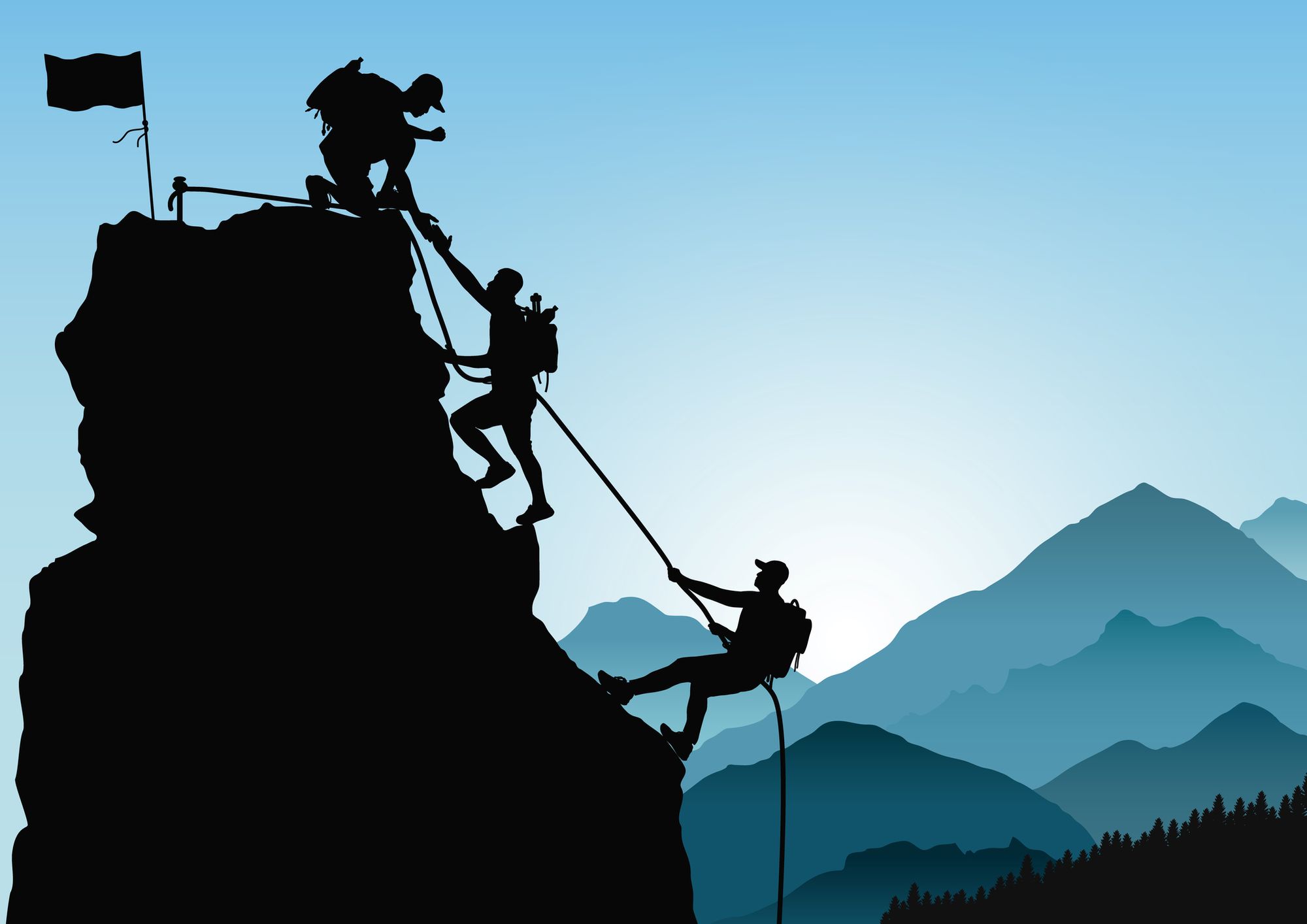
Anyone who loves being outdoors knows that nature isn’t all sunshine and roses. It’s also torrential rain and icy blizzards; blood-sucking mosquitos and steep climbs that continue until your knees feel buggered. But these ‘low points’ in a trip can become shared bonding experiences.
“There was a really, really cold shower at one of the mountain refuges in Morocco,” Olwyn says. “About half of the group had been in the cold shower, and the other half had gone in the hot one. The water was fresh from the underground glaciers, but we weren't really sure how dramatic we were being about the cold until we all talked about it. It was definitely a bonding experience.”
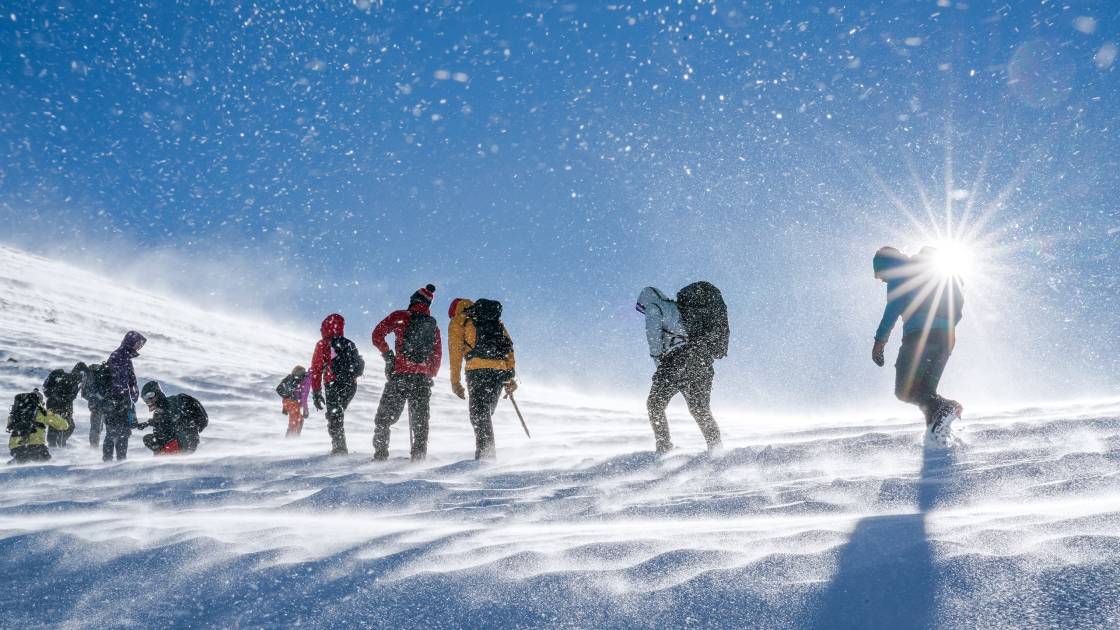
Painful and difficult experiences can act as social glue, bonding a group of people together. A recent study from the Norwegian University of Science and Technology discovered that during a crisis, people actually produce more oxytocin, a hormone that makes you feel connected to, and concerned for, others. And successfully navigating a difficult situation together leads to greater feelings of trust, as Olwyn discovered when her contact lens was dislodged while climbing Mount Toubkal before dawn.
“I asked if somebody could shine a light on it to help me put it back in, because I couldn't see. Everyone wanted to help. They stood around in a huddle to block out the wind, and make sure it didn't get too dry. Everyone was chipping in - someone had a mirror, and someone had eye drops. It's a small thing, but I think whatever had happened, we would have all jumped into action in the same way,” she says.
5. Because Being Outdoors Breaks Down Barriers

Alex Staniforth is the founder of the charity Mind Over Mountains, which offers inclusive therapeutic experiences in the outdoors. He believes that spending time together in nature helps break down social barriers between groups of people.
“Walking side by side, you’ve not got that judgement or expectation - or taboos around topics," he says. "There’s a feeling of what is said in the mountains stays in the mountains. We go up the hill as strangers and come down as friends," he explains.
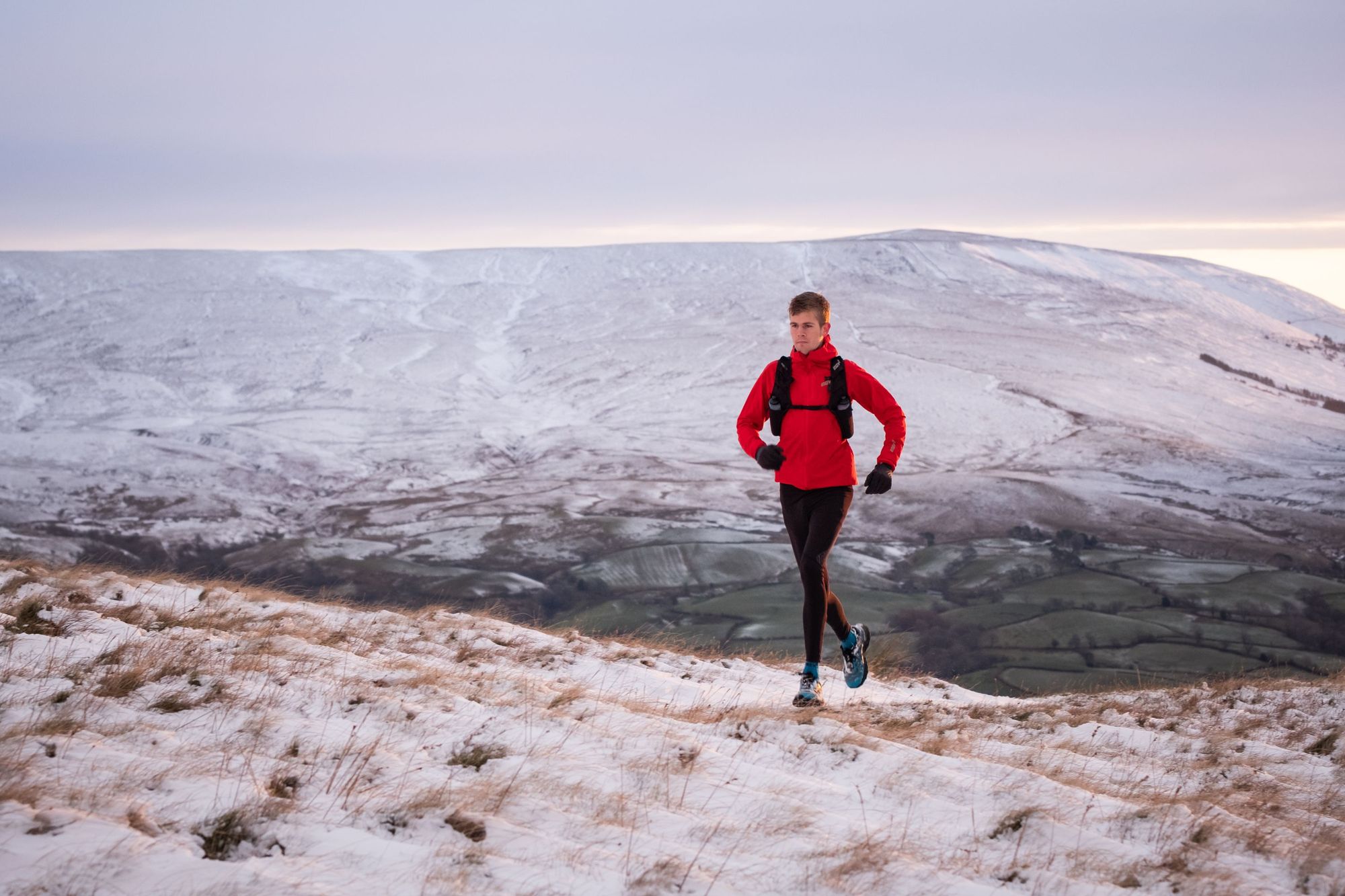
Psychologist Isabel Lemming agrees with him. She believes being out in nature is different to everyday life, where we are cast into constrained social roles.
"I think when you're out in nature, in a more neutral environment, these roles begin to fade away, and there's less pressure to stick up to the social norms," she says.
Of course, there are structural and societal barriers to actually getting out into nature - a recent report revealed that black people made up only 1% of visitors to the UK's national parks. However, organisations like Mind Over Mountains and Amira Patel's Wanderlust Women are helping break down barriers to accessing the outdoors.
6. Because of Those Moments of ‘Being’, Rather than ‘Doing’

Some of our favourite moments spent in nature involve doing precious little. The high point of Olwyn’s trip wasn’t reaching the summit of Toubkal - it was relaxing by a waterfall afterwards.
“We put on flip flops, climbed in the waterfall, had a splash around and then lay there in the sun. It wasn't necessarily chatty or social but it was really nice to have some down time, without the stress of knowing we had to climb a mountain,” she says.
Some psychologists and mindfulness practitioners recognise two states of mind - ‘doing mode’ and ‘being mode’. ‘Doing mode’ is good for getting things done, but it’s problematic when we can’t achieve what we set out to do. ‘Being mode’, on the other hand, isn’t goal oriented.

“It is a state of accepting what is, without feeling the need to change it. In 'being mode' we are aware of what is happening in the present moment in a rich sense, including our senses, our thoughts, our bodies, and our emotions,” explains clinical psychologist Martin Hood.
In ‘being mode’, our focus shifts away from ourselves, towards the world and people around us. Nature helps facilitate this shift because it’s a rich, multi-sensory environment. It’s what Olwyn and her group experienced when they listened to the waterfall, felt cold water and warm sun on their skin. A form of group bonding that requires nothing more than being in nature, together.
Inspired? If you want to feel the benefits of being outdoors, then check out our full range of adventure holidays.




